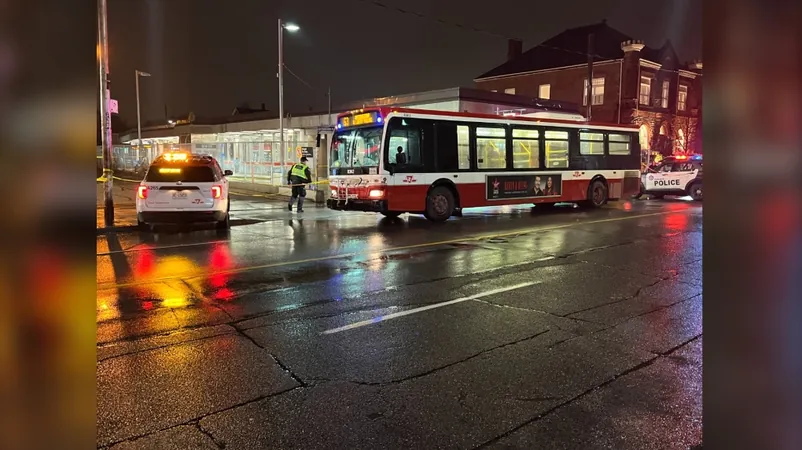
Supreme Court Upholds Controversial Drug Trafficking Conviction Amid Concerns for Privacy Rights
2024-12-06
Author: Olivia
Background of the Case
In a groundbreaking decision on Friday, Canada’s Supreme Court dismissed an appeal in a high-profile drug trafficking case, ruling that police acted justifiably when they used a drug dealer’s cellphone to orchestrate an arrest without a warrant due to urgent circumstances.
Details of the Conviction
The case centers around Dwayne Alexander Campbell, an Ontario man convicted of drug trafficking who contested the legality of the police’s actions during an operation that took place in 2017 in Guelph, Ontario. Campbell argued that law enforcement infringed upon his Charter right to protection against unreasonable search and seizure when they seized the phone belonging to a known dealer.
Police Investigation Process
During their investigation, police noticed four suspicious text messages related to a potential heroin transaction—believed to be laced with the lethal opioid fentanyl—on the dealer's locked phone. Instead of obtaining a warrant, which they claimed would have delayed their operation, officers took the bold step of posing as the dealer and responding to the messages, ultimately arranging a drug delivery that led to Campbell's arrest when he arrived to collect the package.
Trial and Appeals
At trial, Campbell requested that the text messages be excluded from evidence, asserting that they violated his reasonable expectation of privacy. However, the judge ruled against him, stating that Campbell did not have a legitimate expectation of privacy concerning the texts, and even if there was a breach, the evidence was crucial and would not be dismissed.
Supreme Court Decision
In a split decision, with some justices expressing concern over privacy rights, the Court upheld the lower court's ruling. Justice Mahmud Jamal noted the significant public safety risk involved, stating that the police were justified in their actions as it would have been impractical to obtain a timely warrant, especially given the nature of the drugs involved.
Impact and Concerns
However, dissenting justices argued that the police had overstepped their boundaries and that the situation did not represent an imminent threat that would warrant bypassing the warrant requirement. They emphasized the need for judicial checks on police actions, particularly in situations that risk infringing on constitutional rights.
Broader Implications
This ruling highlights the ongoing debate in Canada over the balance between individual privacy rights and public safety concerns, especially in the context of drug-related crimes that have risen alarmingly in recent years. As the opioid crisis continues to devastate communities, legal experts and civil rights advocates alike will be closely analyzing the implications of this decision.
Future Considerations
As Canada grapples with the worsening epidemic of fentanyl and other deadly substances, this case could set a concerning precedent for how law enforcement may conduct operations in the future—potentially leading to more instances where warrants could be sidelined in the name of urgency. What does this mean for your rights? Stay tuned as this story unfolds.









 Brasil (PT)
Brasil (PT)
 Canada (EN)
Canada (EN)
 Chile (ES)
Chile (ES)
 España (ES)
España (ES)
 France (FR)
France (FR)
 Hong Kong (EN)
Hong Kong (EN)
 Italia (IT)
Italia (IT)
 日本 (JA)
日本 (JA)
 Magyarország (HU)
Magyarország (HU)
 Norge (NO)
Norge (NO)
 Polska (PL)
Polska (PL)
 Schweiz (DE)
Schweiz (DE)
 Singapore (EN)
Singapore (EN)
 Sverige (SV)
Sverige (SV)
 Suomi (FI)
Suomi (FI)
 Türkiye (TR)
Türkiye (TR)